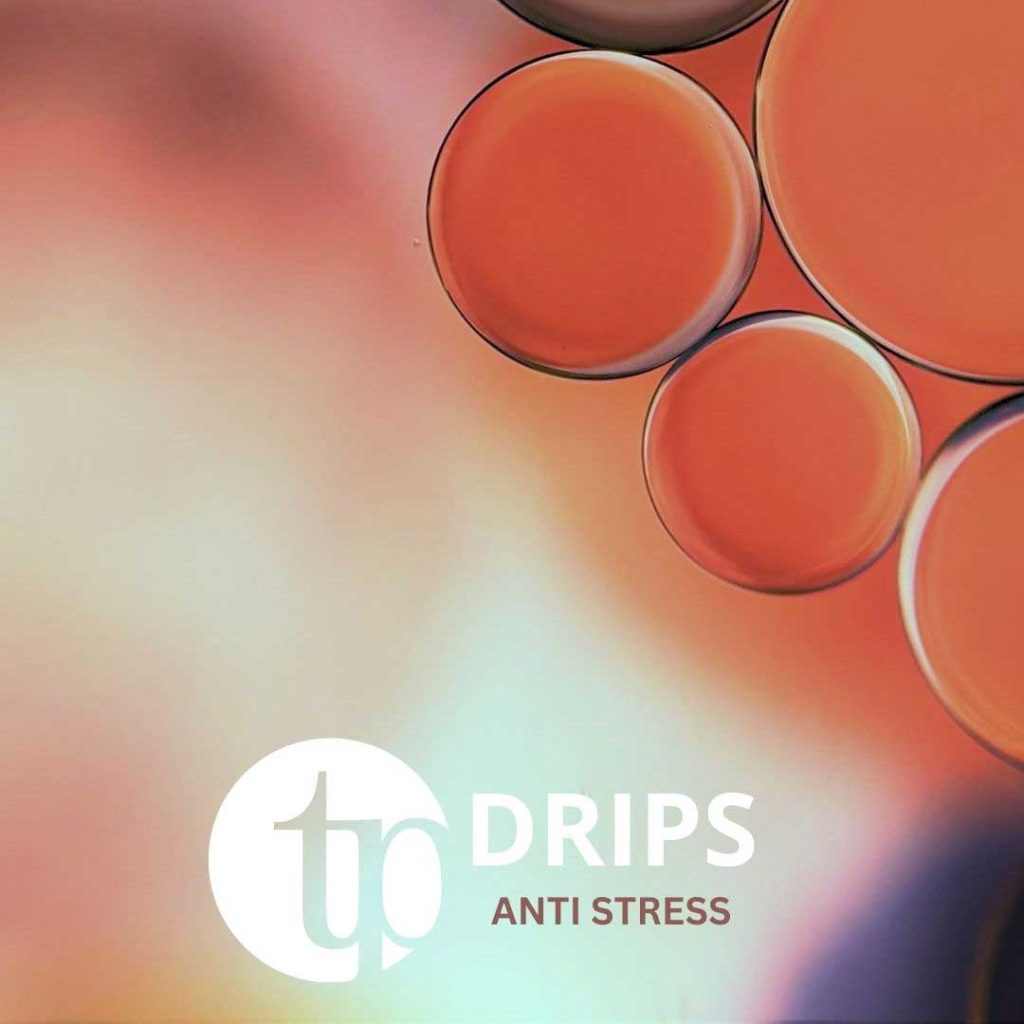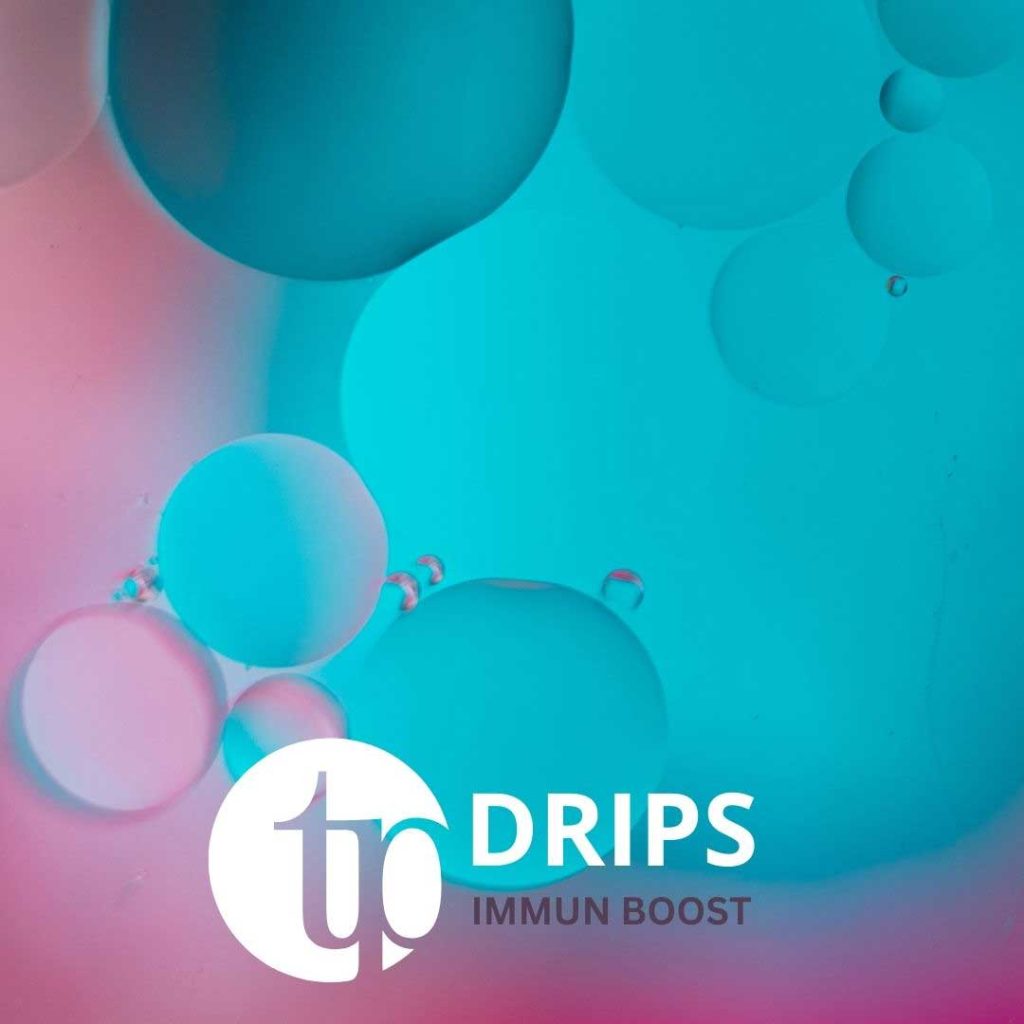
Our body is exposed daily to a variety of environmental stresses that can lead to a creeping “contamination” of the body, especially with an unhealthy diet, stress and or frequent lack of sleep.
Symptoms such as malaise, chronic fatigue, sleep disturbances and depressive moods can be the first signs. Infusion therapy can help to specifically eliminate unhealthy substances and stimulate the body’s own defenses.
By enriching with alkaline elements, minerals, trace elements and vitamins, infusions can also help to increase performance.
Infusions at a glance

ANTI-STRESS
| ◻︎ | Calming effect on the central nervous system |
| ◻︎ | Reduces anxiety |
| ◻︎ | Reduces stress by lowering cortisol levels |

GLOW
| ◻︎ | Slows down the aging process |
| ◻︎ | Anti-aging |
| ◻︎ | Regenerates damaged cells |
| ◻︎ | Prevents pigmentation |
| ◻︎ | Increases the glow and radiance of the skin |

Skin & Hair
| ◻︎ | Formation of collagen and elastin |
| ◻︎ | Promotes skin and wound healing |
| ◻︎ | Stimulates growth and regeneration of hair and skin cells |

IMMUNE BOOSTER
| ◻︎ | Helps with chronic fatigue and exhaustion |
| ◻︎ | Strengthens the immune system |
| ◻︎ | Prevents colds |

SPORTS & MUSCLE
| ◻︎ | Builds muscle fibers |
| ◻︎ | Increases energy level during exercise |
| ◻︎ | Regenerates muscles after physical performance |
FAQ
Questions?
Infusion therapy itself is not painful, only the puncture for intravenous access involves a short prick, as with blood sampling. Usually, most patients feel only a slight pressure or tingling at the injection site.
About 30 to 50 minutes should be planned for an infusion therapy, as the nutrients must be given slowly and evenly into the body. The exact duration depends on the individually composed nutrient supply. The treatment duration of an infusion therapy varies depending on the type of therapy and the patient’s condition. The duration of an infusion varies by indication and is determined by a physician and depends on several factors, including the type of therapy, dosage, and the patient’s response to treatment.
In summary, both infusion therapy and oral nutrient ingestion can be used for therapy when a nutrient deficiency is diagnosed. Infusion therapy provides a more rapid and direct delivery of nutrients into the body’s bloodstream, allowing for higher doses to be provided and less excretion to occur. Oral intake, on the other hand, is delivered through the digestive tract, which can result in slower absorption and lower availability of nutrients. The choice of therapy depends on several factors, such as the patient’s health status and the type of nutrients needed.
Infusion therapy only uses nutrients that the body already knows and needs in order to minimize side effects. Intolerances and pre-existing conditions are considered in advance. It is important that patients report any adverse effects so that appropriate action can be taken. However, in most cases, side effects are considered mild.
Possible side effects of infusion therapy may include:
- pain, swelling, or redness at the injection site
- Bleeding or bruising at the injection site
- nausea, vomiting, or diarrhea
- allergic reactions to the infusion solution or the needle used
- changes in blood pressure or heart rate
Nutrient deficiencies can lead to a variety of symptoms and health problems. Common signs of a nutrient deficiency include paleness, fatigue, headaches, difficulty concentrating, muscle weakness, tingling or numbness in the hands or feet, brittle nails, hair loss, dry skin, susceptibility to infections, dental problems, bone or joint problems, and a weakened immune system. Our doctors can diagnose nutrient deficiencies and recommend appropriate treatment to rebalance the body’s nutrients.
Characteristics of nutrient deficiencies:
- Fatigue and exhaustion
- Muscle weakness or cramps
- Hair loss or brittle nails
- Skin problems such as dryness, acne
- Mouth ulcers or gum problems
- changes in appetite or weight
- anemia (if iron is deficient)
- Nerve problems such as numbness, tingling or muscle weakness (with vitamin B12 deficiency)
- Changes in vision or immune system (for vitamin A deficiency)
- Bone problems or increased risk of bone fractures (for vitamin D deficiency).
If you are diagnosed with a nutrient deficiency, you should not take supplements on your own, as this depends on the type and severity of the deficiency. It is advisable to consult a doctor to determine what type of supplements are needed and in what dosage to achieve the optimal results. A healthy and balanced diet is also important to avoid nutrient deficiencies and promote optimal health. Some nutrients, such as vitamin C and D, are easy to absorb and available in appropriate doses in commercial supplements, while others, such as iron, vitamin B12, or magnesium, should only be taken after consultation with a physician or nutritionist, as incorrect dosage can be harmful.